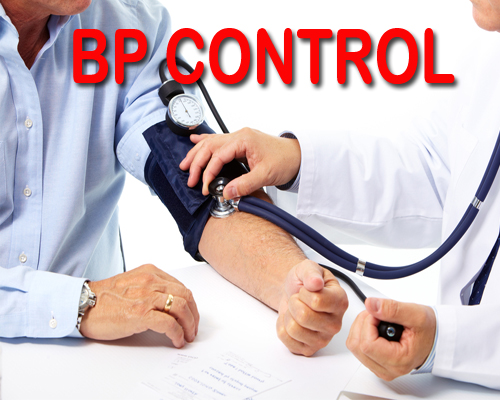- Home
- Editorial
- News
- Practice Guidelines
- Anesthesiology Guidelines
- Cancer Guidelines
- Cardiac Sciences Guidelines
- Critical Care Guidelines
- Dentistry Guidelines
- Dermatology Guidelines
- Diabetes and Endo Guidelines
- Diagnostics Guidelines
- ENT Guidelines
- Featured Practice Guidelines
- Gastroenterology Guidelines
- Geriatrics Guidelines
- Medicine Guidelines
- Nephrology Guidelines
- Neurosciences Guidelines
- Obs and Gynae Guidelines
- Ophthalmology Guidelines
- Orthopaedics Guidelines
- Paediatrics Guidelines
- Psychiatry Guidelines
- Pulmonology Guidelines
- Radiology Guidelines
- Surgery Guidelines
- Urology Guidelines
Faith based approach lowers BP more than mere education

According to a new study church-based program to encourage a healthy lifestyle reduced systolic blood pressure more than an educational program alone in patients with uncontrolled high blood pressure.
The findings of the study that the faith-based approach lowered systolic blood pressure more than an educational program alone delivered in other churches have appeared in Circulation, an American Heart Association journal.
In the study, the researchers evaluated the impact of a program that combined faith-based lifestyle change with motivational interviewing compared to health education alone on 373 adults in 32 traditionally black churches in New York City. The participants had an average age of 63 and 76 per cent were women.
The intense programme included 11 weekly 90-minute sessions focused on lifestyle modifications including healthy diet, exercise, weight loss, adherence to medication and stress reduction. The curriculum included prayer, scripture and faith-based discussion related to health. After the intensive intervention, participants received three monthly phone calls to help motivate them to continue the lifestyle changes.
In churches not part of the intense intervention, participants received one session on lifestyle change followed by 10 sessions of health education delivered by local experts. In total, 32 traditionally black churches participated.
The researchers found that after the six-month intensive phase of the program, systolic blood pressure was reduced by 5.8 mm Hg more in the faith-based lifestyle change group than in the health education group. The benefit was sustained but smaller (5.2 mm Hg) after nine months. However, researchers could not rule out that the latter finding was not due to chance alone. There was not a significant change in diastolic pressure (the bottom number in a blood pressure reading).
“Implementation of a lifestyle program in a faith-based setting was very effective in improving blood pressure control and could be routine practice in places of worship,” said Gbenga Ogedegbe, senior author of the study, professor of medicine and population health, and director of the Center for Healthful Behavior Change at the New York University School of Medicine. “This is particularly important for black communities who suffer a disproportionately higher burden of heart disease due to high blood pressure, and who may not have access to care due to a lack of insurance or mistrust of the healthcare system.”
“Although the blood pressure reduction at nine months did not reach statistical significance, its clinical implications remain very important given that most trials of high blood pressure treatments have a similar magnitude of effect,” Ogedegbe said. “We do think that a stronger support component in the six- to- nine- month period may have led to even greater blood pressure reduction. Future studies could evaluate additional support, such as tailored text messages and brief check-ins with lay health advisors.”
The study is limited because it could not determine how much of the difference in blood pressure resulted from lifestyle improvements and how much from changes in medication or better adherence to medication.
“Participants were encouraged to speak with their physicians about their medications and any problems they were experiencing. Future research should test an intervention that links the community and clinics as partners in delivering the intervention,” Ogedegbe said.
In a commentary for the AHA Centers for Health Metrics and Evaluation, American Heart Association President Ivor Benjamin, M.D., noted the study confirms the value of community-based interventions delivered by trusted community members.
“These approaches can play a critical role in African-American communities, where lack of health insurance or distrust of the healthcare system may limit access to care,” Benjamin said. “Future efforts should focus on how to maximize the potential public health impact of these community-based interventions, such as increasing participant enrollment, engagement and retention. Then, we’ll need to scale up and sustain what works.”
The Faith-based Approaches in the Treatment of Hypertension (FAITH) is the first and largest community-based study to evaluate the effect of a comprehensive lifestyle intervention on blood pressure reduction among African Americans in prominently black churches. In the past other faith-based interventions have successfully increased cancer screening, reduced weight and improved fruit and vegetable intake among churchgoers, researchers said.

Disclaimer: This site is primarily intended for healthcare professionals. Any content/information on this website does not replace the advice of medical and/or health professionals and should not be construed as medical/diagnostic advice/endorsement or prescription. Use of this site is subject to our terms of use, privacy policy, advertisement policy. © 2020 Minerva Medical Treatment Pvt Ltd